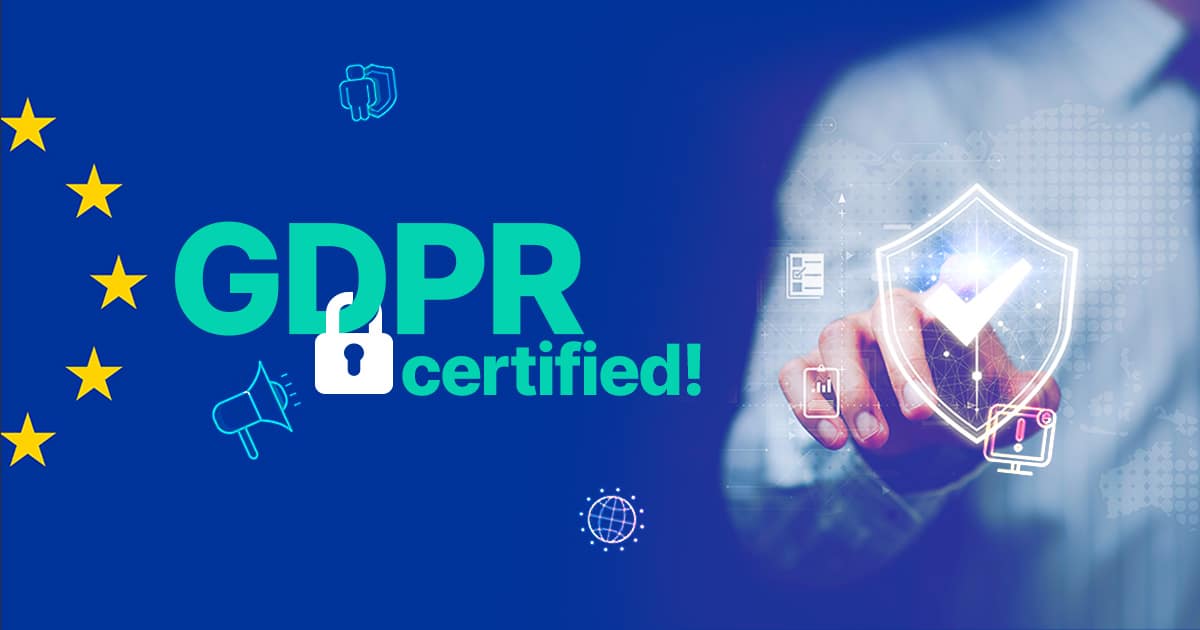The importance of data security is paramount these days and is one of the biggest challenges, with an increasingly growing number of companies employing remote staffing and outsourcing for scalable growth. With sensitive data on personnel and businesses crossing borders, this would call for a robust security framework compliant.
The data privacy regulations, including the General Data Protection Regulation, set the bar high. Complying in an environment where these have been set is no longer enough. Cyber threats are becoming increasingly sophisticated, cross-border data exchanges are the norm, and AI-driven solutions are changing how companies think of security. To stay competitive and build trust, businesses must be proactive toward a multi-layered view of data security.
This article discusses data security best practices in remote staffing and outsourcing, why GDPR matters globally, and how AI transforms security solutions.
The Rise of Remote Staffing and the Data Security Challenge
Home-based work has swept over the modern corporate sector, with explosive rises in remote staffing and outsourcing. According to Gartner, 74 percent of CFOs intend to make remote work permanent for some employees. Companies increasingly rely on a remote team that manages everything from IT support to customer service, data processing, and financial transactions. However, the trend is accompanied by high risks of severe data security breaches.
- Cross-border data transfers: The remote teams are normally located in countries with weak data protection laws, making it much more complicated to comply with those policies.
- Greater chance of exposure to cyberattacks: The more employees working remotely, the greater a company’s exposure to phishing, ransomware, and even social engineering attacks.
- Complex regulatory compliance: Companies need to comply with GDPR, CCPA, LGPD, etc., and emerging laws from other regions, such as those in India and South Africa.
AI’s Role in Data Security: A Game Changer for Outsourcing
As cyber threats become more sophisticated, the role of AI in data security has increased manifold. Companies use AI-powered security tools to protect their data. As both entities, outsourcing, and remote staffing, constantly move data around by third-party vendors, AI has proven critical in dealing with real-time threats and ensuring compliance is achieved adequately across borders.
1. AI for Real-Time Threat Detection and Response
Understanding the role of AI in data security is essential to realize its potential for companies of all sizes. Artificial Intelligence learns by processing huge datasets to find those subtle patterns that may signal danger. Thus, it is crucial for remote staffing where data flow goes on among systems scattered over continents. AI systems help enterprises in two ways:
- Identify abnormal usage behavior that could indicate an inside breach or unauthorized access.
- Track the behavior of employees spread across distributed teams and can identify insider threats.
- AI-powered systems alert the system instantly whenever potential threats are identified, which results in restricting the damage before it is done.
Capital One suffered a massive data breach in 2019, leaking more than 100 million credit card applications in that breach due to misconfigured firewalls. Encryption is important for data security and these breaches are likely to occur if AI-powered systems flag unusual behavior in the cloud environments where most remote teams work since they tend to flag suspicious activity before the breach leads to significant data leakages.
2. AI-Driven Compliance Automation
Also important to be in line with regulatory frameworks, AI enables businesses to navigate complex regulatory frameworks hassle-free by automating key business processes and ensuring appropriateness in handling data. This meets the strict norms required for cross-border transfers and regional privacy laws like GDPR, CCPA, and LGPD.
For instance, the widespread and heavy reliance on IBM’s AI-based products enables organizations to monitor data subject consent and automate compliance reports, greatly reducing compliance teams’ manual workloads. This allows businesses to operate without risk of fraud while avoiding unlawful acts.
Future advancements in quantum encryption will transform data security in the near future. Quantum computing’s encryption is considered almost unbreakable. This will be especially important for cross-border data exchanges envisioned for increasing outsourcing and remote staffing models. Blockchain technology will also establish immutable records of data transactions, which can then be used to deliver auditable proof of data protection measures at companies.
Trust and Data Security: A Behavioral Science Perspective
Trust is particularly essential for outsourcing relationships because it ensures that outsourced information is well handled, especially when the customers are geographically remote from the teams involved.
1. Trust as a Competitive Advantage
In fact, the research shows that customers’ fear of losing trust and harming their reputation worries them more about business than obtaining any benefits through outsourcing. Companies that demonstrate a commitment to data security best practices and data privacy protection attract clients who place considerable emphasis on data integrity.
Equifax faced one of the most massive hacks ever recorded in 2017 when over 145 million consumers’ data was compromised. This breach was not just financially oriented but also impacted the company’s reputation and damaged client trust. This indicates a substantial need for proactive data protection and openness mechanisms before more irreversible reputational impairment occurs.
2. Transparency and Psychological Safety
Data security for clients is no longer only about technical compliance but has become about psychological safety with a trusted partner. It all starts with transparency in data handling, clear protocols, and swift responses to security concerns. Security is that central element with which a long-term relationship comes into existence.
India, as one of the biggest outsourcing hubs in the world, is playing an important role in creating client trust through data protection. Thus, Indian regulations are on par with international standards such as GDPR and give comfort to businesses so that they can outsource their data while ensuring its integrity. Virtual Employee is one of India’s first remote staffing services showcasing how Indian companies are embracing best practices for data protection and AI-driven security solutions to help clients maintain trust.
Data Security Regulations: A Global Perspective
Though the gold standard for most regarding data protection, most other regions are continuing to build their frameworks. Outsourced workers or team people must respect various regulatory landscapes.
1. GDPR: The New Benchmark for Data Protection
GDPR is considered by many as the most comprehensive data protection law. For companies employing remote staff, compliance under GDPR means that personal data is treated transparently and securely with integrity. Some of the major requirements include:
- Express consent for data collection.
- Data encryption and safe storage.
- 72-hour data breach notification.
However, wherever GDPR may go, data protection does not end at Europe’s borders.
2. The Global Landscape of Data Security Expands
Other nations have enacted their own laws:
- The CCPA in California gives its people the right to know what’s being collected and used for.
- LGPD of Brazil asks users to be clear about their data collection and processing rights.
- India’s PDPB makes cross-border data transfers stringent; hence, the businesses outsourcing from India are complex.
Others, including South Africa and Singapore, are building more elaborate data privacy laws and exhibiting a general internationalization to more robust data protection. For enterprises operating across several regions, compliance is not simply about avoiding fines; it is getting a reputation of trust in a global marketplace.
The Future of Data Security in Outsourcing: Proactive Measures for Success
Data security will always be part of business operations, given the growth of the outsourcing and remote staffing industries. Customers will be long-term assured with those businesses that take proactive steps to integrate advanced security measures and avoid breaches.
1. Proactive Security: Beyond Compliance
Businesses need to change their mindset to be proactive in security measures and keep ahead in responding to evolving cyber threats.
- Regular security audits to identify and resolve vulnerabilities.
- This will call for investing in AI-based real-time monitoring and response tools.
- Continuous training of teams worldwide on the most updated version of what is currently available in the security field.
- Companies that embrace AI-driven solutions and continually test their security frameworks prevent disasters.
Such AI-powered threat detection systems allowed a US-based healthcare company in 2020 to halt a ransomware attack on its remote contractors by detecting abnormal login activities and resulting in instant locks on affected accounts. Such rapid response saved millions of dollars worth of potential losses and retained the patients’ and clients’ trust.
Building Trust in a Data-Driven World
Trust is the new oil of the data-driven economy today; it forms the power behind successful outsourcing relationships. Thus, clients need to be assured that their data is not only secure but also handled by partners who are transparent and proactive about existing potential threats.
Narinder Singh Mahil, CEO of Virtual Employee, says: “In today’s era of remote staffing, data security becomes the bedrock of trust. Companies demonstrating real-time protection and regulatory compliance will gain leadership positions in this data-driven economy.”.
Conclusion: Why Data Security is Essential for Remote Staffing
From using outsourcing and offshoring as the foundation upon which the growth bed would be built, data security went beyond normal compliance, with more now being a basis for the trust placed in others. Essentially, the bottom line is that adherence to the regulations of one’s global jurisdiction, such as GDPR in the EU, CCPA in the United States, and PDPB in India, is paramount but, most importantly, must go beyond these compliances.
With the current rapid change in threats, companies can shield themselves against them through AI-driven tools, periodic security audits, and embedding transparency into every part of their data handling practices. More importantly, they can cultivate trust with their clients, placing long-term partnerships on a foundation of data integrity and security.
In such an environment, the global remote staffing market leaders emphasize data security and proactive measures. Shaunvir Mahil, CEO of Virtual Employee, states, “Data security isn’t just about protecting information—it’s about building trust and positioning your company as a reliable partner in a data-driven world.”







